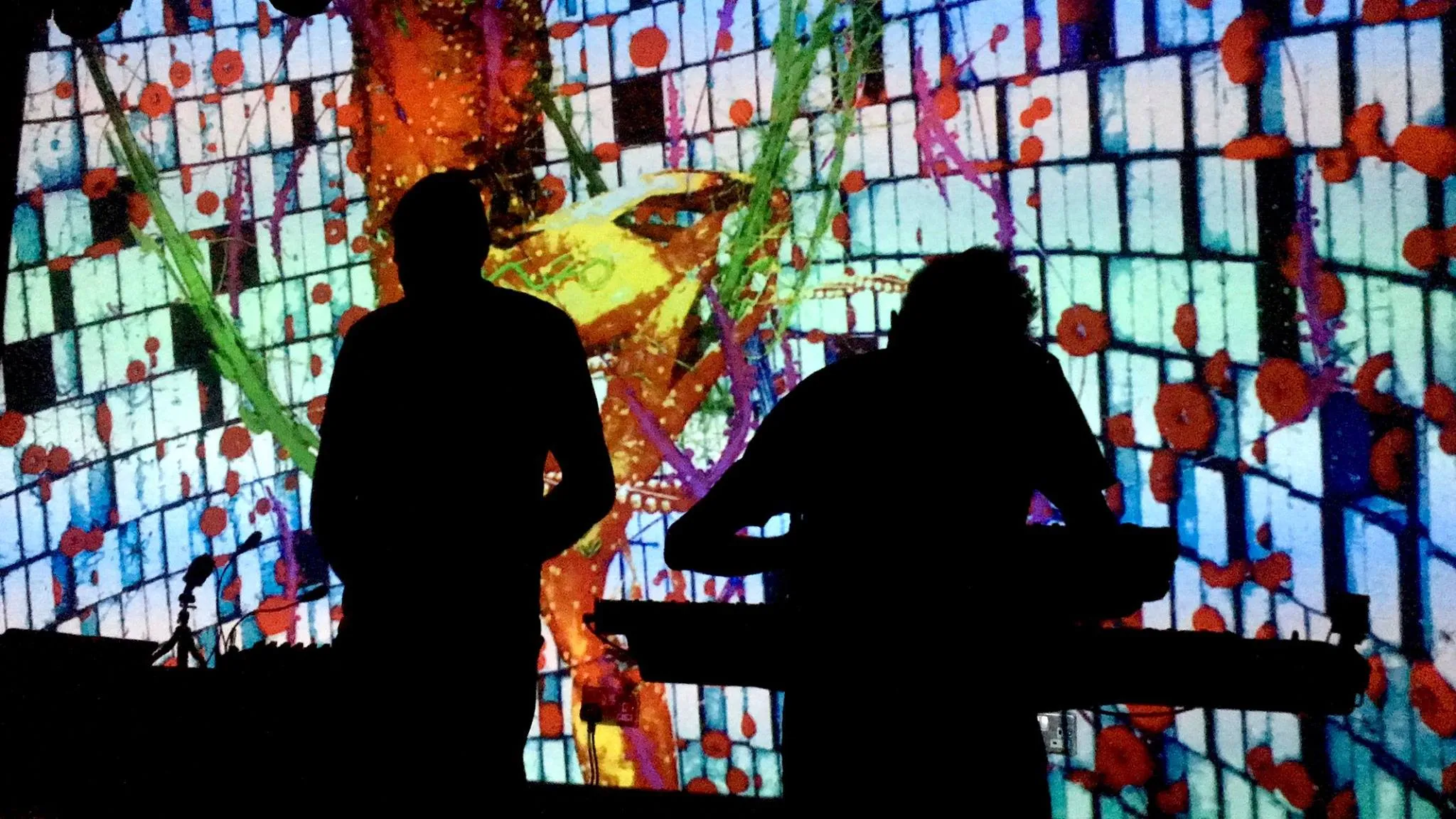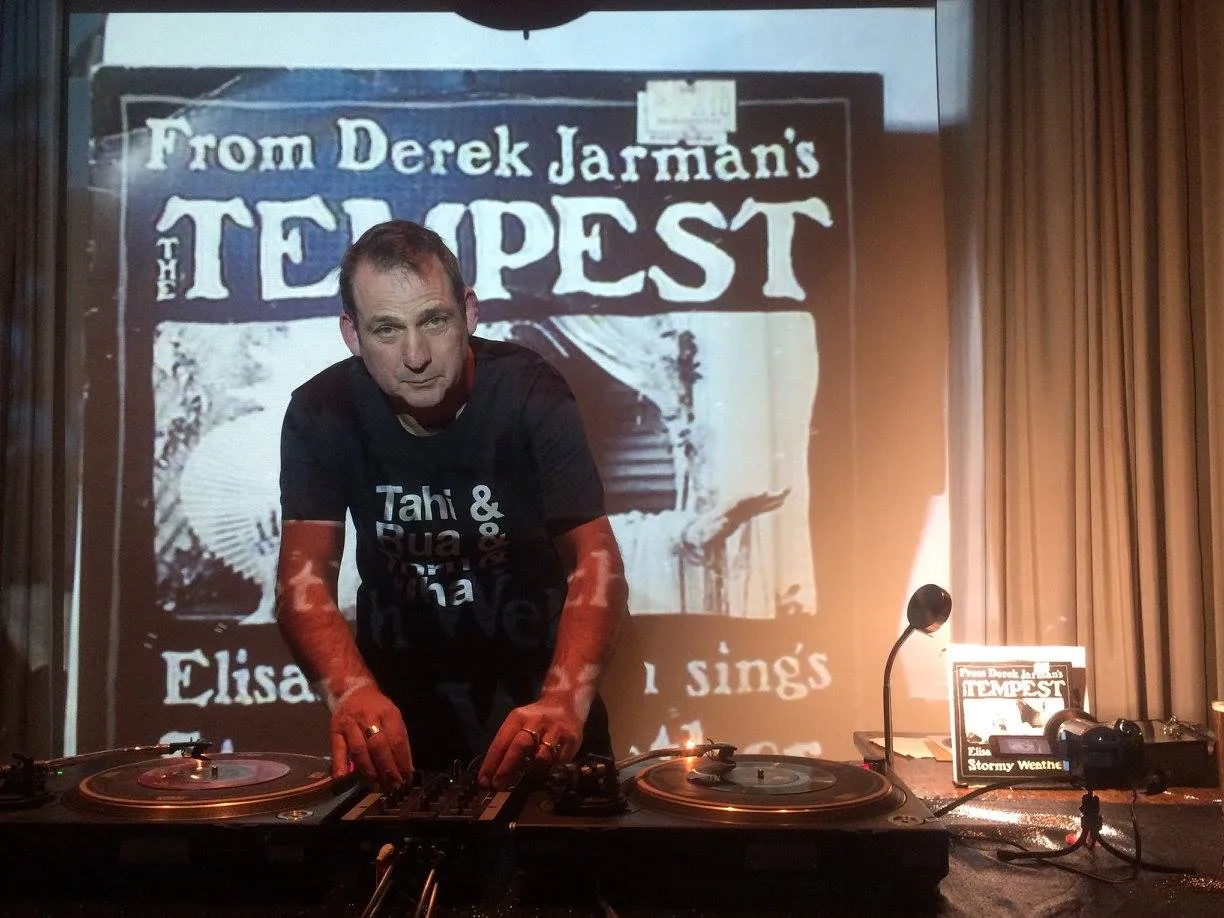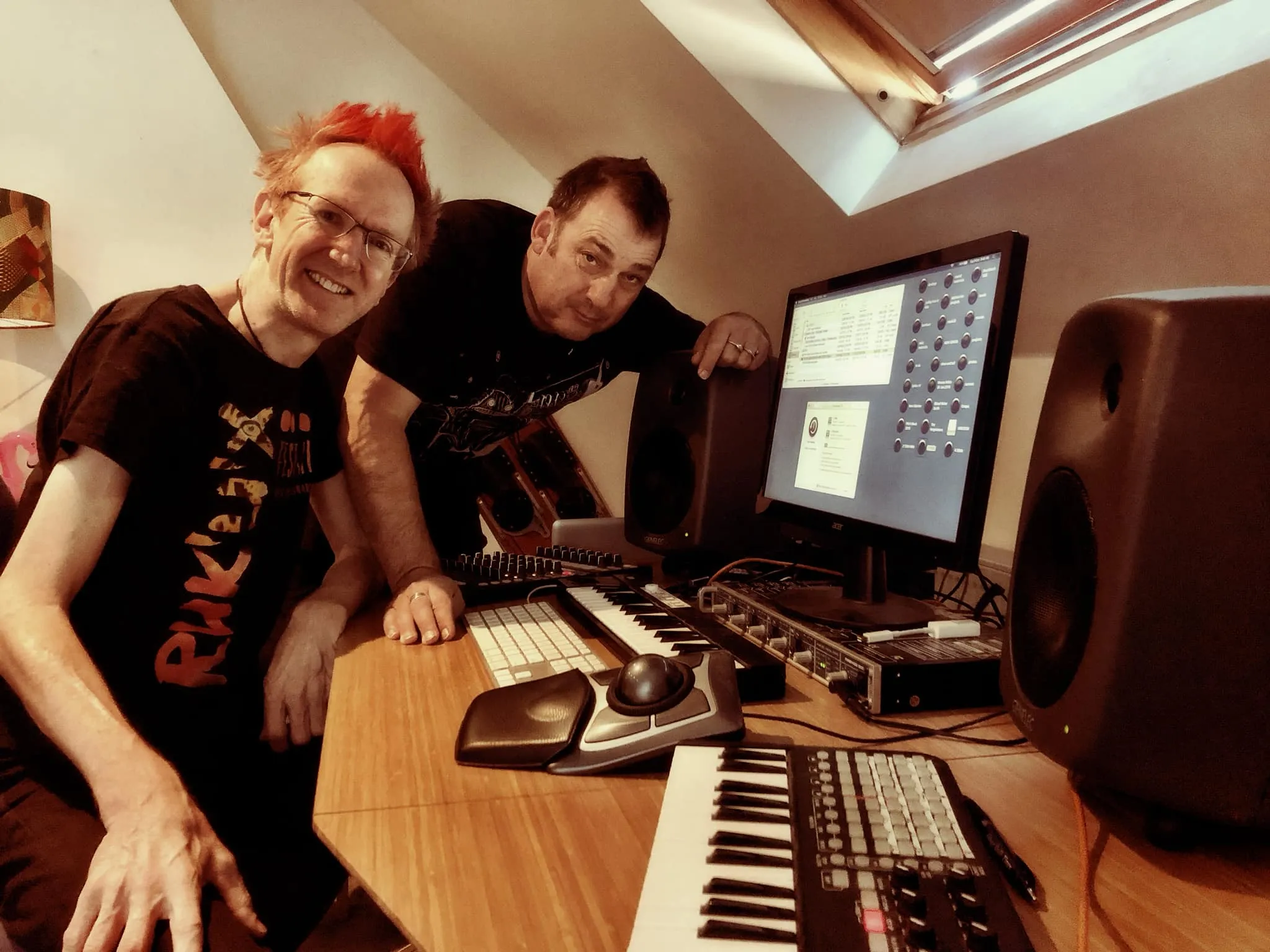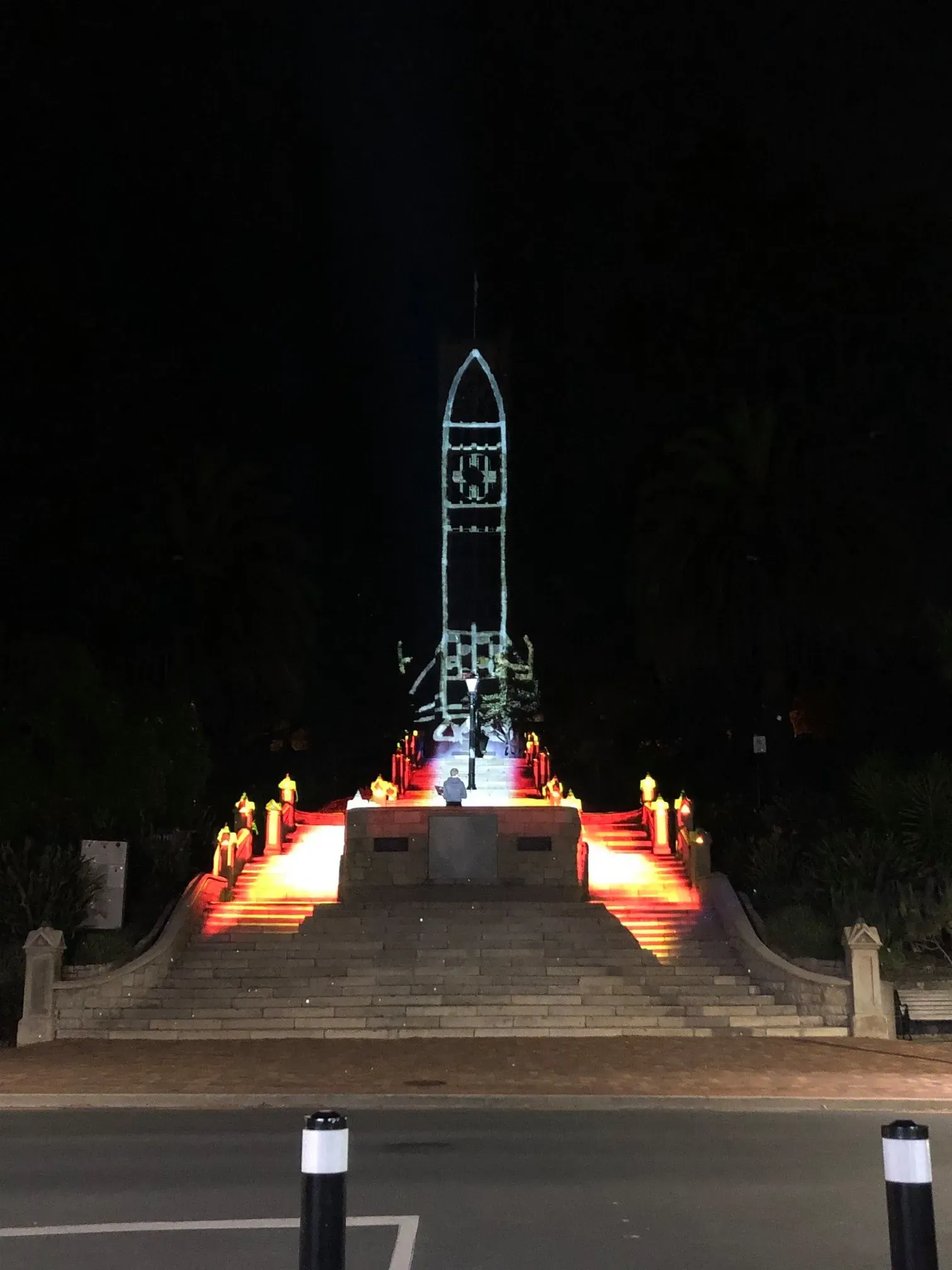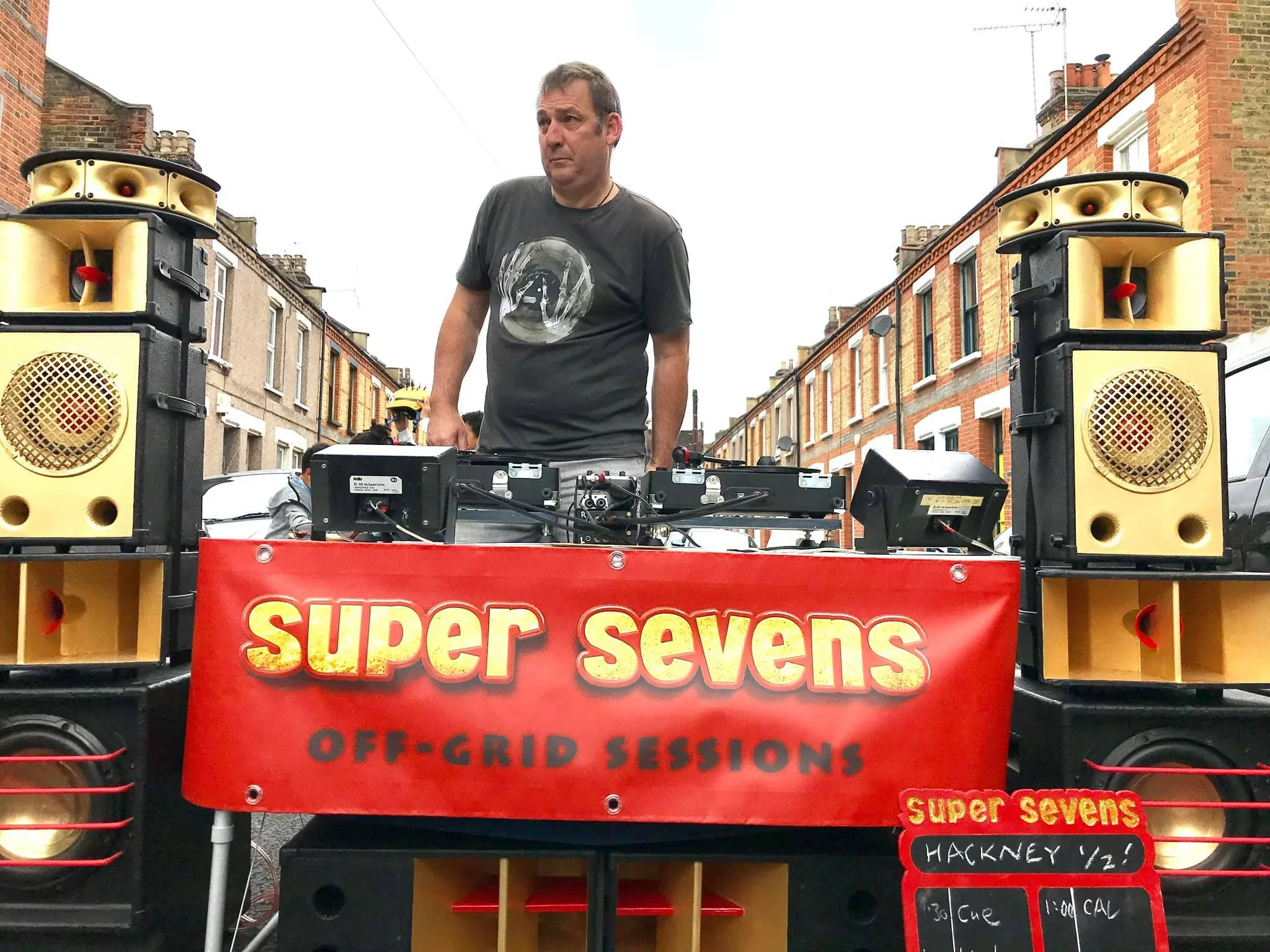Audio-Visual Visionary Returns Home
Written by
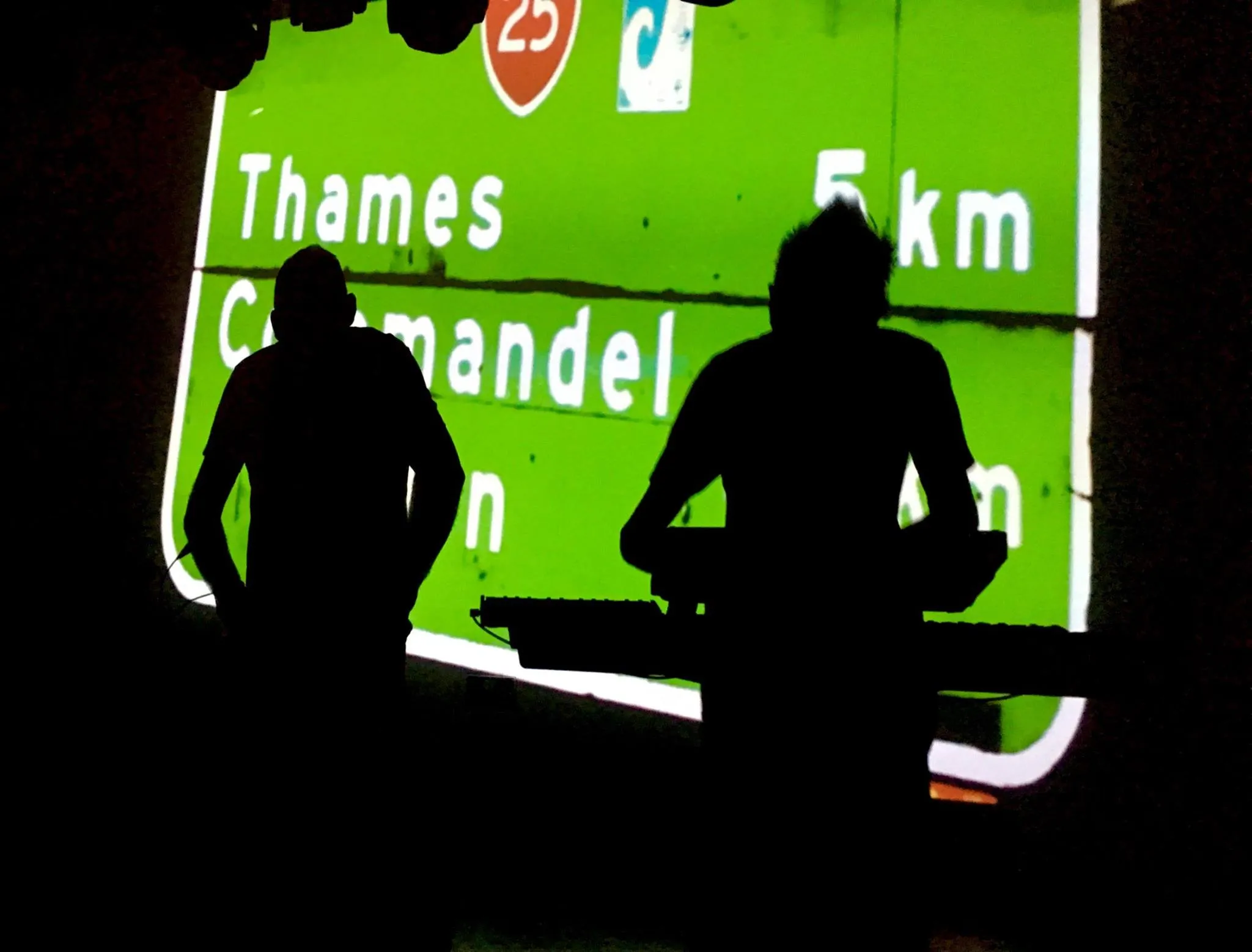
“I’ve been very lucky .. as long as I’ve got enough money to buy the vinyl I want and pay for my software and subscriptions, I’m leading a very pleasant artist's life.”
Michael Hodgson is settling back into Auckland for the next soundscape of his remarkable career, after bringing his family through the MIQ lottery and bracing for five very different years ahead.
The originator of pioneering electronica artists Pitch Black, alongside co-creator Paddy Free, has left the buzz and creative opportunities of London behind him.
And he’s not holding back on the reasons for the wrench.
It’s been a helluva ride for the father of two teenagers with a mind-boggling range of musical, community and audio-visual ventures, and nearly two years of enduring COVID’s grip on society.
Pitch Black burst onto the scene in NZ back in the late 1990s, turning heads and warping ears with their intoxicating electro-dub on the Futureproof album, illuminated by Hodgson’s stunning visuals. There have been six acclaimed, genre-busting albums, along with a sonorous flood of remixes, live albums, reimagined versions and solo projects.
Hodgson has returned with a relaxed approach to future creative endeavours.
As The Big Idea discovered while he packed up the family and treasures from his home in the northeast London borough of Hackney, he’s got strong views on everything from COVID to inclusivity and Spotify’s stingy payouts to musicians.
Pension retention
After a decade in the UK, his hand has been forced for family and future financial security reasons.
Work and Income New Zealand has inflexible rules when it comes to Kiwi artists working offshore, who are looking ahead to their retirement back home.
“Our parents are getting older .. and there’s the classic thing that’s hitting all of us at our age, I mean I’m 56, is we have to do five years in NZ to be allowed a pension.
“Anyone who’s followed their arts won’t necessarily have a big retirement fund behind them. You know, I’ve got the grand sum of zero. So lots of my creative friends from around the world are heading back.
“I’m hearing a few horror stories at the moment because of COVID, of people who’ve left it a bit late and they’re a month short of their five years. They’re starting to be denied pensions.”
Pitching in
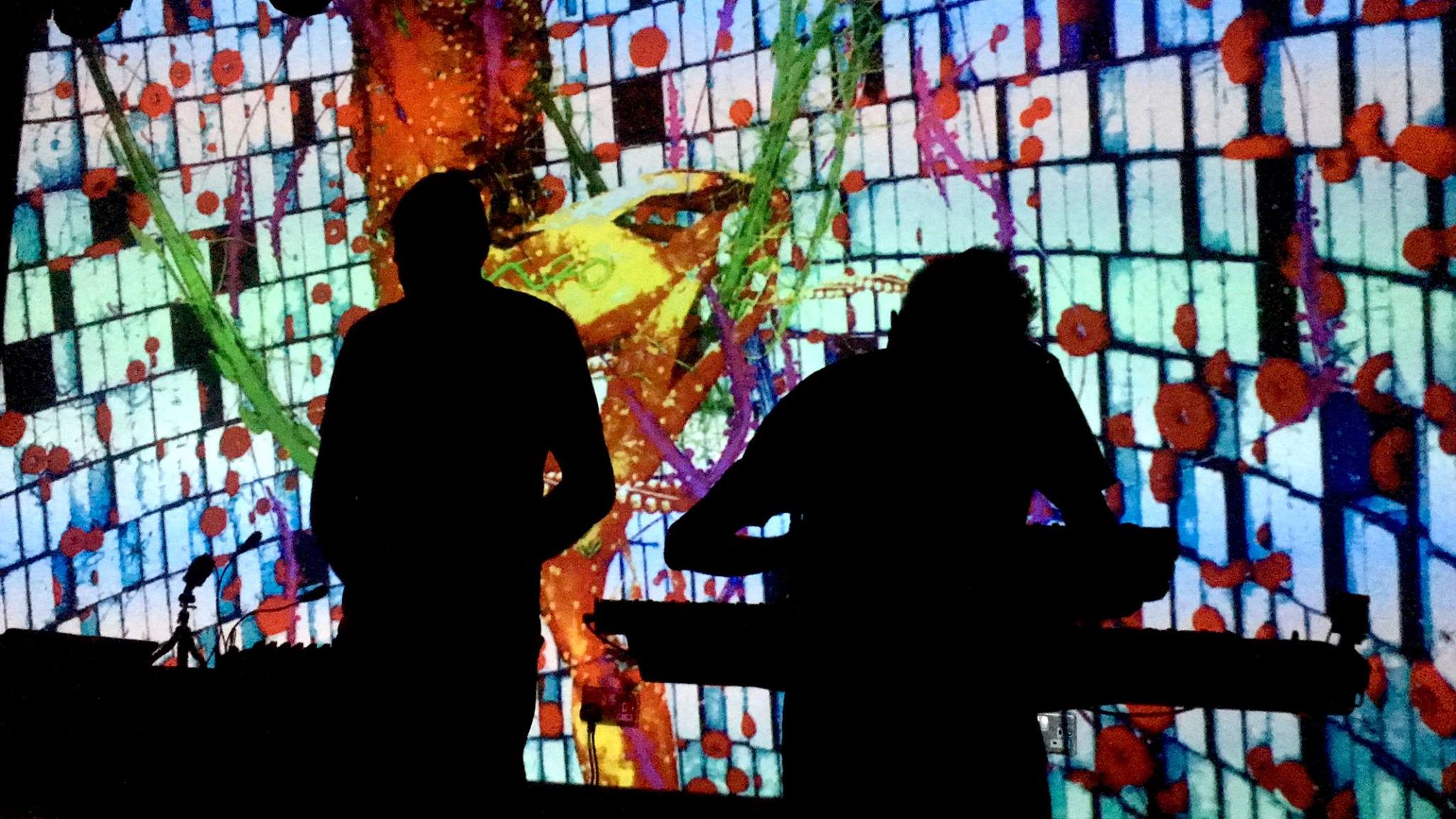
Pitch Black performing in London 2019. Photo: Supplied.
Pitch Black are renowned and respected for their genre-blend of dub-heavy sounds and their longevity which has seen them labelled “the godfathers of NZ electronica”. They spearhead a group of rich, globally-admired groove merchants from Aotearoa including Salmonella Dub, Fat Freddy’s Drop and Shapeshifter.
But Hodgson has had to rely on his other talents and a successful partner to fund his passion.
“My music is not my full-time income. I do sound design for a few companies and soundtracks for some short films. I’ve let the video production go on the backburner, walking away from some of the big money AV productions. I have done some beautiful work here but decided to spend a couple of years to let my partner’s career fly and look after the kids and be creative.”
He’ll have to switch to a long-distance relationship with one of the greats of independent music, after forging a partnership in London with the guru and famed producer of the ground-breaking On-U Records label, Adrian Sherwood.
“Yeah, he’s been my favourite producer all of my life.
"We’ve built a really nice friendship. I’ve been very generous with my time … I’ve been recording gigs and turning up and doing stuff and in return, he’s offered to do a few remixes for me.
"It’s a nice mix of our two skills, his skill is incredible and I’ve been able to do something that he needed."
Away from Pitch Black, Hodgson has a solo recording project and a collection of albums, under the name of Misled Convoy, with an interesting backstory to stoke his creative fires.
“During the Bosnian war, there was a moment where a NATO plane bombarded what they thought was a convoy of soldiers moving. But it actually turned out to be a bunch of villagers fleeing an area.
“And the official definition from NATO was it was a ‘misled convoy’.
“I was in New Zealand and I was wanting to do some solo stuff .. something that was sort of bleak that yet had a sense of playfulness. I just remember hearing this crazy report of the completely malfunctioned NATO bombing raid on villagers and I just thought it was dark, but if you don’t know that it is dark, it’s quite a playful name.”
The solo project has given Hodgson the chance to take Pitch Black’s sonic landscapes into more challenging areas, the darker zones he embraces.
“Paddy and I, back in the early days of digital, we used to laugh with ‘sample set quivering on the edge of the page wondering if they’ll get into the track or get sent off to the solo sets’.
"That’s the great thing, we both have our outlets to do our absolute purity which means what we do together doesn’t have to fulfill those dreams.
“We’re able to then be less precious about the things we bring into what we do together. We can let things go a lot.
“I can go ‘I really like this sound’, and Paddy would go, ‘I really hate it’.”
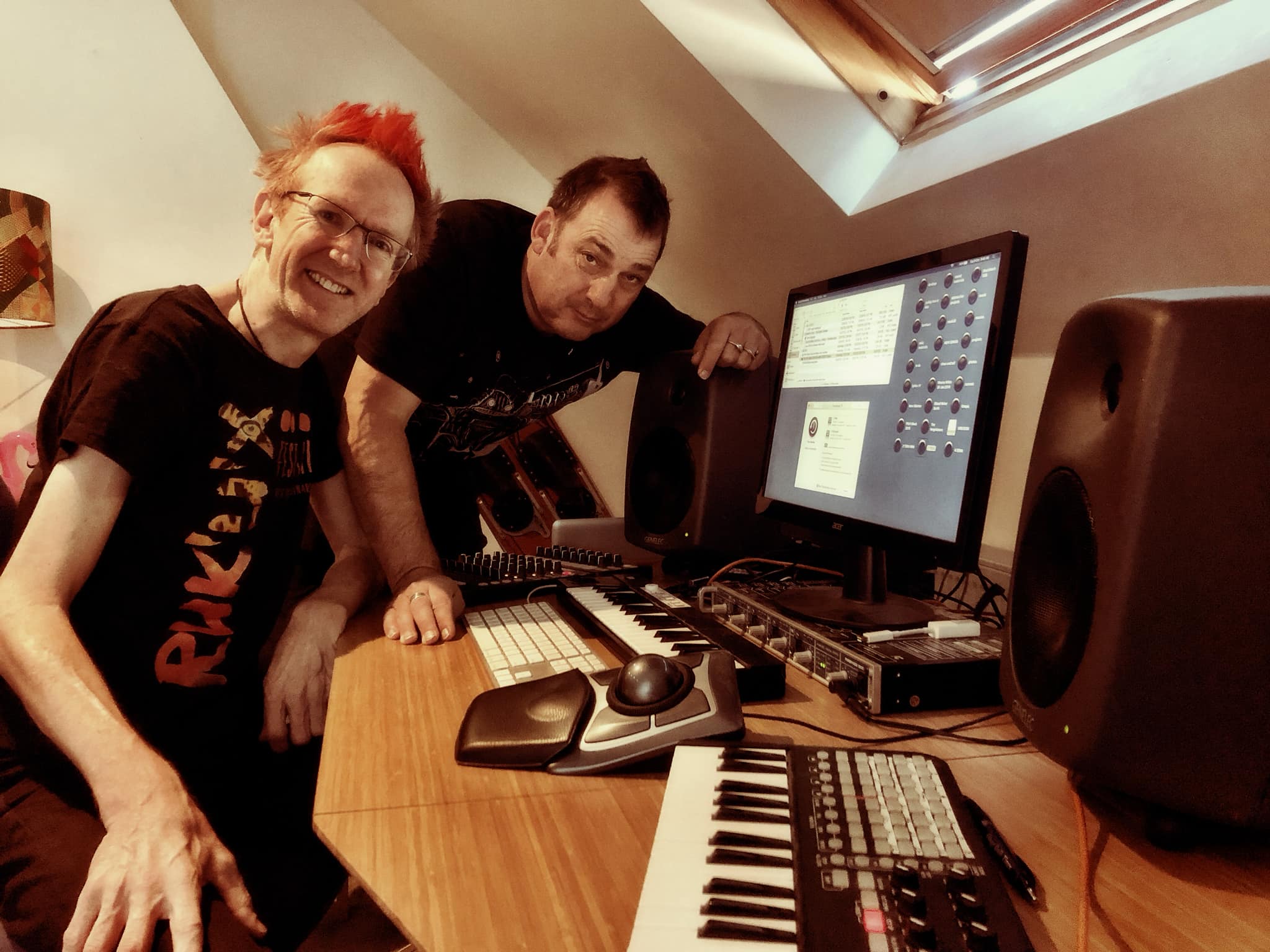
Pitch Black duo Paddy Free and Michael Hodgson. Photo: Supplied.
So once he’s settled back into life in New Zealand and his home in Pt Chevalier, will he start liaising, writing and producing again? The dynamic duo already has another of their famed remix albums good to go for a February release - Mixes and Mavericks.
“23 years and six albums … we’re not prolific. The last record was three years ago so we’re probably due for one in a couple of years.
“We’re just putting the final touches on a remixes and rarities album... It’s a collection we’ve done in the last six years plus some weird bits we dug out of old hard drives and old CDRs.
“It’s a really eclectic mix … we love remixing other people’s work. We love people remixing our work and we love doing what we do.”
Clear vision
He’s very inclusive about his output, likes other people to be involved and for ideas to flow including the stunning shows which have been described as ‘deftly triggered visuals’.
Hodgson’s images and technical craft stunned the crowd at the Nelson Arts Festival with Piki Mai, during the Rugby World Cup in 2011 and before an updated 3D symphony in 2019.
“The video world’s developed, the technology’s come on. The projectors have got brighter, the LED screens have got bigger, the servers have got stronger. What you can do on the software has developed from when I started on an Omega 3000 with a 20 meg hard drive triggering stills during concerts.”
He’s yet to decide what he’ll do on the work front once he’s got his feet back under the table.
“I like creative video so I loved it when a corporate would say ‘hey, come and make a 15 minutes opening for our conference. Here’s the theme, whatever you’re into at the moment, just make something amazing and blow the socks off our delegates.’
“So if I can find that seam in the New Zealand market again for sure, but I don’t know to be honest.
“I think I’ll be happy making music, exploring AV and coming to Singles Going Steady.”
Family first
Family life will keep him busy, with his two children aged 13 and 15. His remarkable skills run in the family too, with an older son from a previous relationship, following in dad’s tech footsteps.
“I’ve also got a 29 year-old who’s moved into the world of AV, and he’s blasting it in the world of super high-end digital stuff that’s way beyond my brain.
“He’s definitely cutting edge and it may be that we end up doing a collaboration together.”
His wife Lara has a top-end job that helps pay the bills, and allows him to delve into his creations.
“She’s already scored a job and I’m quite happy in my role. I’m going to help the kids transition back into New Zealand. They can go to school, Lara can go to work and I can have six or seven hours in the house making music.”
Hodgson loves infusing the dark, echo-driven edges to Paddy Free’s desire to make people dance. The ambient textures and samples, moods and atmospheres, and the visuals that make Pitch Black’s live shows such a textured experience.
What about emerging from the gloom and launching a comeback tour of Aotearoa in June next year?
“We could spend a year developing a new show and do summer 2022/23. But let’s see.
“I know the venues are hurting .. I have lots of friends that run events. Most of my mates are musical. It’s really hard to watch them struggle.”
Lessons from London
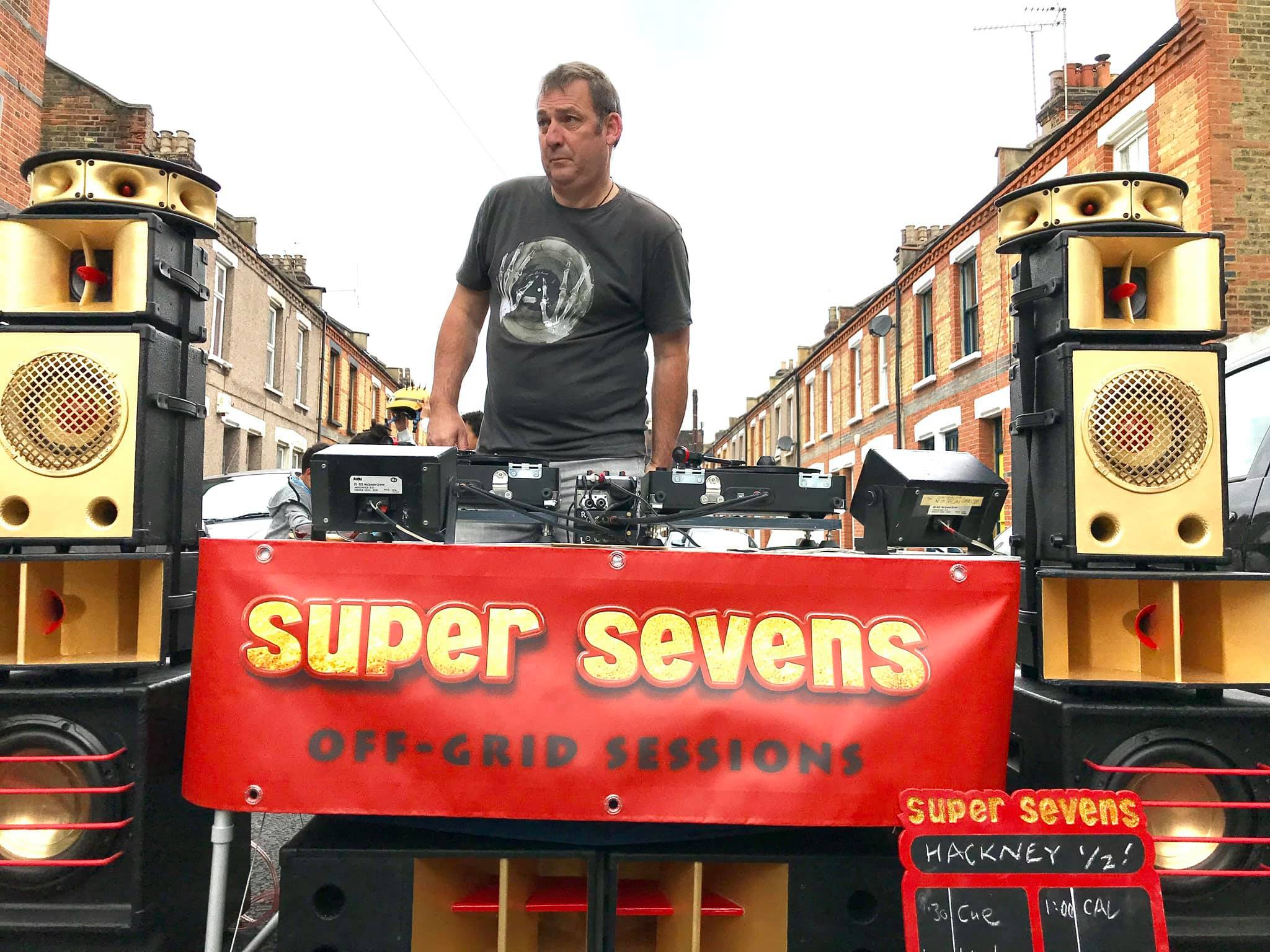
Michael Hodgson performing in his adopted hometown of Hackney. Photo: Supplied.
Hodgson’s happy to see the government put together an arts support policy and is hopeful that it helps the live music industry, the venues and the artists climb off their knees - which could be done through the return of small-scale gigs.
“I went to a few (in London) in the middle of our crazy lockdowns. There were only 12 people allowed in the room, we had to be seated. If you stood up you had to wear a mask.
“And I saw some amazing stuff. Artists who were unable to play were being booked by these venues. You had to pay ten pounds to get in and there’d only be like ten of you watching some incredible artist in the front room of a bar.
“Every setback offers some sort of opportunity.
“It’s going to be really weird for me coming back because London is basically open.
I choose to wear a mask when I go out but I also do go to gigs. And I take my chances.. I think I’ve had COVID but I’m not sure.”
Red light, green light?
It’s a fractured scene in Auckland and throughout Aotearoa for live music, depending on whether the region is under Red or Orange light restrictions, with the hope of Green if the country keeps the pandemic under control.
“Sure, it’s not filling Spark Arena, it’s not with the biggest screen or the biggest PA but the underground has a moment of thriving because you’re limited to 100 people.
“In London gigs just went off when you could go … people went out and celebrated.
“As an artist, I’m always looking for inspirational ways to reflect my situation and I think artists have done that as I think artists should.
“We’re on the bones of our arse and others need to get used to it.”
Streaming? More like trickling...
He unquestionably isn't in it for the money, hence the move home to ensure a pension, and streaming giants Spotify certainly don’t pay the bills with their miniscule payouts to independent musicians.
“We get 40 thousand plays a month. My son asked me the other day for Spotify premium because he hates the ads. I did a rough calculation and I’m pretty certain that 40 thousand plays a month doesn’t allow me to buy my kids Spotify. I’m pretty sure I can’t afford to turn the ads off Spotify with 40 thousand plays a month.
“I understand why it’s so popular. I think the algorithm they started with should be something like the first 100 plays get paid out at a high rate. The next ten thousand plays get paid out slightly lower, then lower for the next 100 thousand plays, the next million plays gets lower, and so on.
“The smaller, independent artists that probably only get a thousand plays ever, might get a thousand bucks.
“I think it’s outrageous that they haven't been mandated to change the model which is why I use Bandcamp. I think they give 75% of all proceeds back to us. I think Bandcamp was set up by the people who set up Paypal. They’re rich and just trying to build a better egalitarian world. The original Google statement of don’t be evil. How much money do you actually need?
“Once you’re comfortable the first thing you should be doing is giving back. They (Spotify) are sort of holding the world hostage, it’s weird how that’s come about and how easily it’s come about.”
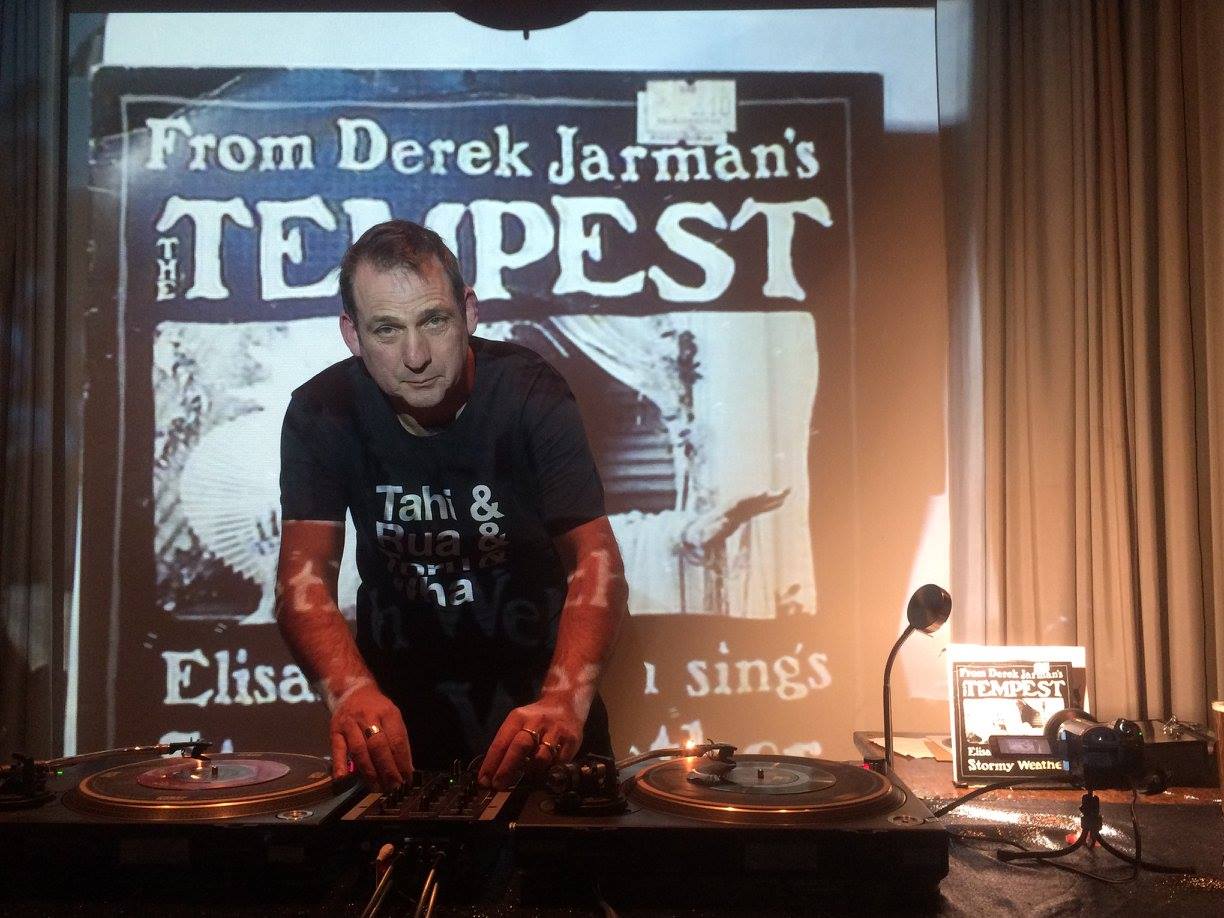
Michael Hodgson. Photo: Supplied.
Mike Hodgson is a national treasure, and a bloody good bloke.
His drive to elevate electronica-dub into challenging sonic atmospheres illuminated by arresting visual interpretations has been phenomenal for more than two decades.
He’s extraordinarily generous with his talents and time, and still has the desire to create, diversify and adapt late in his career.
London is still calling, but for now there’s time to slow down and re-set the dials in New Zealand.
“Any story that talks about inclusiveness and diversity and openness is good by me.”
